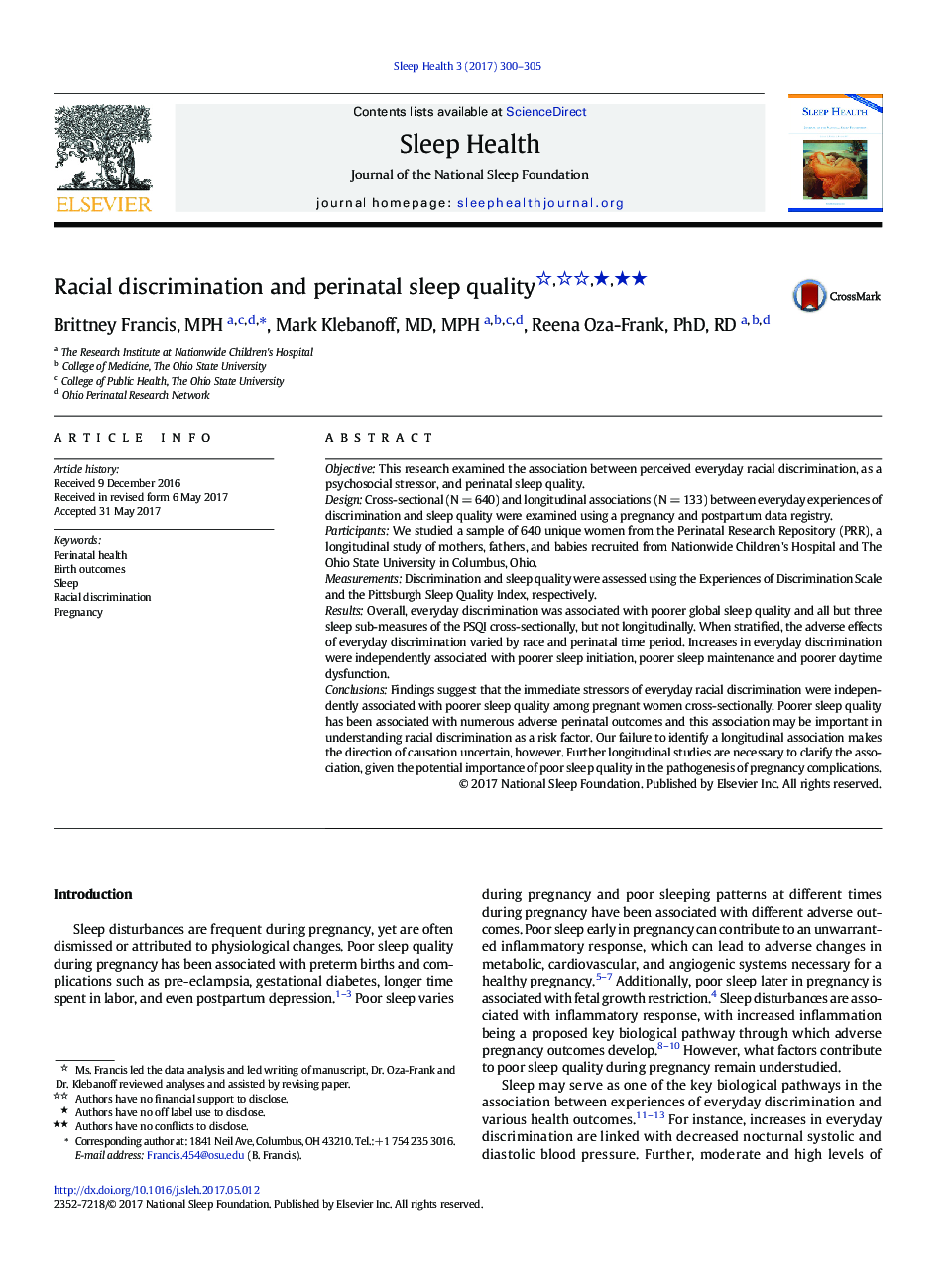| Article ID | Journal | Published Year | Pages | File Type |
|---|---|---|---|---|
| 5039561 | Sleep Health | 2017 | 6 Pages |
ObjectiveThis research examined the association between perceived everyday racial discrimination, as a psychosocial stressor, and perinatal sleep quality.DesignCross-sectional (NÂ =Â 640) and longitudinal associations (NÂ =Â 133) between everyday experiences of discrimination and sleep quality were examined using a pregnancy and postpartum data registry.ParticipantsWe studied a sample of 640 unique women from the Perinatal Research Repository (PRR), a longitudinal study of mothers, fathers, and babies recruited from Nationwide Children's Hospital and The Ohio State University in Columbus, Ohio.MeasurementsDiscrimination and sleep quality were assessed using the Experiences of Discrimination Scale and the Pittsburgh Sleep Quality Index, respectively.ResultsOverall, everyday discrimination was associated with poorer global sleep quality and all but three sleep sub-measures of the PSQI cross-sectionally, but not longitudinally. When stratified, the adverse effects of everyday discrimination varied by race and perinatal time period. Increases in everyday discrimination were independently associated with poorer sleep initiation, poorer sleep maintenance and poorer daytime dysfunction.ConclusionsFindings suggest that the immediate stressors of everyday racial discrimination were independently associated with poorer sleep quality among pregnant women cross-sectionally. Poorer sleep quality has been associated with numerous adverse perinatal outcomes and this association may be important in understanding racial discrimination as a risk factor. Our failure to identify a longitudinal association makes the direction of causation uncertain, however. Further longitudinal studies are necessary to clarify the association, given the potential importance of poor sleep quality in the pathogenesis of pregnancy complications.
